Announcement on the Implementation of China VI Emission Standards for Automobiles
In announcement no. 14/2023, dated May 17, 2023, the State Administration for Market Regulation (SAMR) announced the implementation of China’s national emission standards phase VI (B). The new stage’s revised requirements focus on the pollutant emission limits for light vehicles subject to the GB standard GB 18352.6-2016 and heavy-duty diesel vehicles under GB standard GB 17691-2018. Both will need to surpass enhanced minimum limits starting from July 1, 2023. Many products of the automotive industry (such as complete vehicles as well as numerous components) require CCC certification in China, and/or CCAP certification or CQC certification.
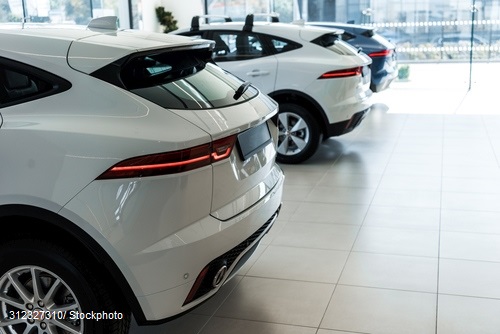
The new phase VI (B) for emission restrictions will be implemented simultaneously throughout the People’s Republic of China. From July 1, 2023 onwards, the import, production and sale of vehicles that do not meet the new limits will be prohibited. Vehicle manufacturers and importers are required to submit relevant certificates, and further evidence (if applicable) to the relevant Chinese authorities before the implementation date.
Pollutant emission limits are a central topic of Chinese politics and legislation, the importance of which is also underlined by the given announcement. The announcement was made jointly by the Ministry of Ecology and Environment of the People’s Republic of China, the Ministry of Industry and Information Technology of the People’s Republic of China, the Ministry of Commerce of the People’s Republic of China, the General Administration of Customs of the People’s Republic of China (GACC), and SAMR.
Chinese guidelines and norms as well as the GB standards and product specific implementation rules related to the automotive sector are regularly updated by the authorities of the Peoples Republic of China (PRC), often having considerable implications for the corresponding product manufacturers. Updates are usually not announced and must be independently tracked and implemented by certified factories. Failure to do so may result in severe consequences, including withdrawal of CCC certification.
For more information on how CCC certification, the CCC Self-Declaration and voluntary CCAP or CQC certification may affect your company, or for more information about CCC certification in general, please visit our News Section where you will find current updates twice a week.
Please do not hesitate to contact us for further details and consultation. You can contact us via email, Chat, or call us (UK: +44 2071931135, Europe: +49 69 2713769150, US: +1 773 654-2673).
You can also check out our free CCC-Brochure, which can be downloaded as a PDF file. The brochure also contains information on the CCC Self-Declaration and the voluntary CQC- and CCAP-Certification).
New GB/T 18488 Draft for the Testing Requirements of Drive Motor System for Electric Vehicles
The National Technical Committee for Automotive Standardization (also known as TC114) has announced a new draft status for the regulation of drive motor systems for electric vehicles. TC114 is under the Ministry of Industry and Information Technology (MIIT) and is essential for drafting new regulations for the automotive sector. The revised GB/T standards are GB/T 18488.1-2015 and GB/T 18488.2-2015. The title of the current draft is 20213563-T-339, and after further editing, it is to become the new version of the previously mentioned GB/T standards, therefore GB/T 18488-20XX.
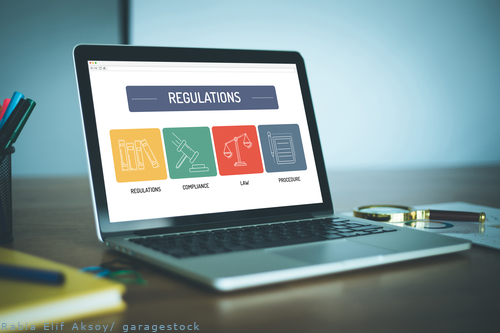
Within the scope of the overall vehicle homologation in China, corresponding tests (MIIT or CCC) and labelling requirements are prescribed for electric motors and inverters. The new revision revises both the testing requirements and the marking requirements. Integrated drive systems are also included in the standard. These product categories require CCC certification for import and distribution in China.
Detailed information on the changes published so far can be requested from us. We will publish further details on the changes in the new version on our website as soon as they become available.
In order to implement the new standard, a transition period of 1 year is usually granted for existing drive motor systems. It is therefore purposeful to harmonize COP tests and new homologation tests for an implementation in e.g., 2024.
For more information on how CCC certification, the CCC Self-Declaration and voluntary CCAP or CQC certification may affect your company, or for more information about CCC certification in general, please visit our News Section where you will find current updates twice a week.
Please do not hesitate to contact us for further details and consultation. You can contact us via email, Chat, or call us (UK: +44 2071931135, Europe: +49 69 2713769150, US: +1 773 654-2673).
You can also check out our free CCC-Brochure, which can be downloaded as a PDF file. The brochure also contains information on the CCC Self-Declaration and the voluntary CQC- and CCAP-Certification).
BYD invests $4.2 billion in lithium projects in Jiangxi province
Chinese EV manufacturer and battery producer BYD plans to invest the equivalent of US$4.2 billion in various projects in Yichun, Jiangxi province. The group’s battery division’s plan includes the annual production of batteries totaling 30 GWh, a lithium carbonate plant with an annual output of 100,000 tons, and the expansion of lithium mining sites. This information was provided by Chinese news portal Caixin Global based on a publication from the local provincial government. Battery-related products often require CCC certification to be approved for import and operation in China.
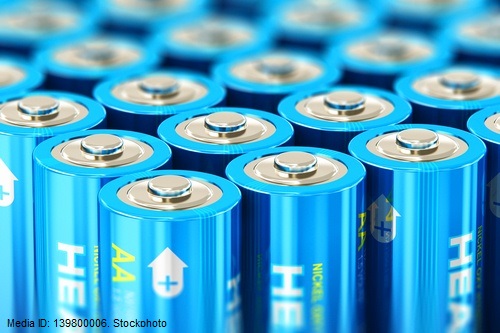
BYD is the third major battery company to invest in Yichun’s lithium industry after CATL and Gotion High-Tech. The lithium deposits in Yichun are present as the widely occurring mineral lepidolite. According to data from Yichun’s official website, mining companies extracted more than 83,000 tons of lithium carbonate from lepidolite last year, accounting for about 28 percent of China’s total production. Among them, lithium carbonate is mainly used for the production of cathodes in lithium iron phosphate batteries. In April and May of this year, the aforementioned three companies secured additional mining rights of lithium-bearing rock in Jiangxi province.
In March 2022, BYD acquired a 5 percent stake in Shengxin Lithium Group, China’s leading lithium miner, as a strategic partner with more than $415 million. A few months later in July, BYD bought a 2.11 percent stake in Anda Energy, a lithium iron phosphate producer, making it the ninth largest shareholder. Even before the planned expansion of lithium production in Yichun, BYD announced an expansion of its production capacities. Thus, another five projects are to be advanced and the annual production is to be expanded to 172 GWh. According to South Korean research institute SNE Research, BYD brought batteries with a capacity of 24 GWh to market in the first half of 2022. This represents a global market share of 12 percent and a rise from fourth to third place among the world’s largest battery manufacturers.
Vehicles and components such as batteries of EVs must be awarded a CCC certificate in order for the products to be exported to China or manufactured locally. CCC certification is a complex project that requires professional supervision at all stages. For several years, MPR China Certification GmbH has been entrusted with large CCC projects for the vehicle manufacturers Lotus, Tesla and Bugatti. We will be pleased to provide you with non-binding advice on the scope and requirements of a China CCC certification.
iPhone maker Foxconn sets sights on EV market
Taiwan-based Foxconn, known to many as the maker of Apple’s iPhone, recently showed off two new EVs at an event in Taipei. Foxconn, officially listed as Hon Hai Technology Group, aims to make about 5 percent of all EVs sold worldwide by 2025, Chairman Liu Young-way said at the event. He said his ambitious goal for the future is 40 to 45 percent market share for EVs, a similar figure Foxconn currently holds for computers and smartphones. As with its electronics products, Foxconn does not plan to launch its own brand or sales for EVs. Instead, the EVs will be built on behalf of other manufacturers, similar to how Europe’s Magna-Steyr produces vehicles for established automakers such as Mercedes, BMW and Jaguar. The two Foxconn EVs unveiled at the event are simply meant to demonstrate Foxconn’s level of development and manufacturing expertise.
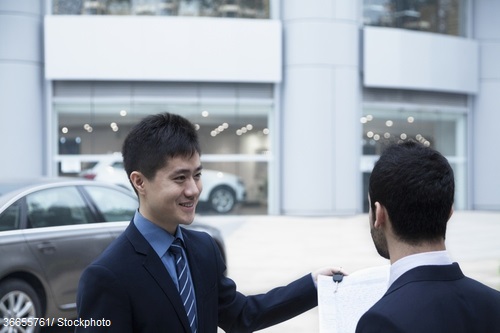
In the U.S., Foxconn recently began production of an electric pickup truck in Lordstown, Ohio. GM previously manufactured small cars with internal combustion engines at the plant. GM sold the plant in 2019 to startup Lordstown Motors, which initially planned to manufacture electric pickups there itself. Then, earlier this year, Foxconn took over the factory and agreed with Lordstown Motors to manufacture the electric pickup there under contract starting in September. The first deliveries of the e-pickup, called Endurance, are scheduled for later this year.
Furthermore, Foxconn has signed an agreement with Fisker Inc. to manufacture its Pear electric small car at the Lordstown plant as well. Indi EV, another California-based startup, is also having its first e-car, Indi One, produced by Foxconn. In addition to vehicles, Foxconn has also been contracted to manufacture the Monarch MK-V electric tractor at its plant. According to CNN Business, it is unclear how much Foxconn expertise is involved in the respective vehicles. In this regard, a Fisker spokesperson said that in the Pear EV, some components or parts of the software are from Foxconn, but the design of the vehicle comes from the hand of Fisker CEO Henrik Fisker. No Foxconn components are used at all in the Lordstown Endurance pickup, according to a spokesperson. Nevertheless, the two companies have agreed that future vehicle developments will be based on Foxconn technology.
By contrast, Foxconn has already prepared an EV for sale in the domestic market. The Model C prototype is to be launched as the Luxgen N7 and deliveries are expected to begin in the second half of 2023, according to Foxconn. Luxgen’s parent company, Yulon Group, formed a joint venture with Foxconn in 2021. Called “Foxtron,” the company is engaged in the development and production of EVs. In addition to the Model C, a seven-seat crossover SUV, Foxconn’s portfolio consists of the Model B compact SUV, the Model E sedan, and the Model V all-wheel-drive pickup truck. The Model B and Model E were designed by the well-known Italian design firm Pininfarina, which also works with Vietnamese automaker VinFast, among others. While the Vinfast Model VF8 and VF9 are already available for pre-order in Europe, it remains to be seen when and under which brand the Foxconn vehicles will be available outside of China.
Please don’t hesitate to contact us for details and advice on e-mobility product certification, battery system registration or other product certifications. You can contact us via email, Chat, or call us (UK: +44 2071931135, Europe: +49 69 2713769150, US: +1 773 654-2673).
Another car brand from China is coming to Germany
After Nio and their first model ET7, the next Chinese car brand is in the starting blocks for the German market. This time it is the Ora brand of the automotive group Great Wall Motor (GWM). In addition to the unusual name “Funky Cat”, the company is also focusing on an EV in Golf format and not another SUV like other manufacturers. The Funky Cat impresses with a retro design that could remind one of a Porsche, especially from the front. The technology and interior, on the other hand, are state of the art and exude high quality standards.
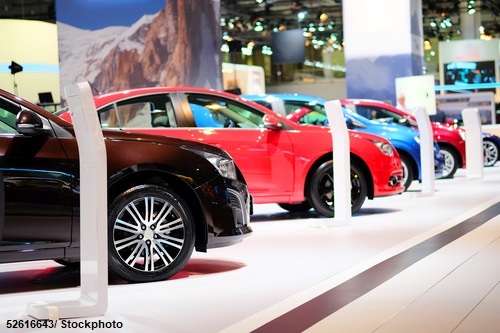
Even the basic version of the Ora Funky Cat comes with a full range of safety features and achieved five out of five stars in the EuroNACP crash test. The highlight of the extensive range of functions is a voice assistant that performed spoken tasks practically flawlessly in initial tests by German car magazines, thus reaching the level of premium brands. The Ora is powered by an e-motor with 126 kW (171 hp) and accelerates to 100 km/h in 8.2 seconds, with a top speed of 160 km/h. The basic version has a 48 kWh battery on board, which is said to be sufficient for a range of around 300 kilometers; with the more powerful 63 kWh battery, around 400 kilometers should then be possible. The entry-level price (before deduction of the EV subsidy) is likely to be just under 40,000 euros, with around 10,000 euros added for the top GT version. In total, the Funky Cat will probably appear in five variants on the German market from January. The newly founded Emil Frey Import Services, which also includes Mitsubishi’s German distribution, will be responsible for imports.
Vehicles and components must be awarded a CCC certificate so that the products can be exported to China or manufactured locally. Regarding e-mobility and battery system registration for both China and other markets, there are also many factors to consider.
For more information on how various product certifications might affect your business, or information on certification processes and requirements in general, please feel free to contact us directly.
Please do not hesitate to contact us for more details and advice. You can contact us via email, Chat, or call us (UK: +44 2071931135, Europe: +49 69 2713769150, US: +1 773 654-2673).



